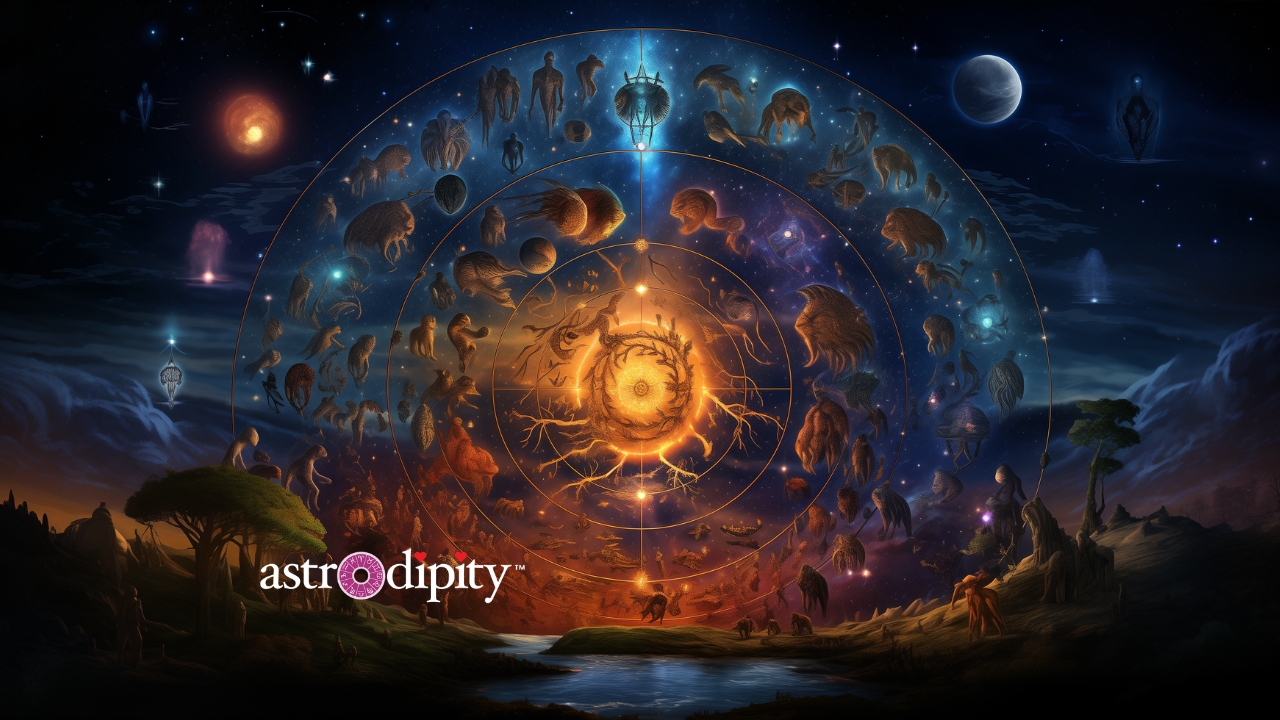
The realm of astrology is vast and varied, with numerous systems each claiming insights into our lives. A common question among enthusiasts and skeptics alike is: "Which astrology is the most accurate?" This blog gets into the major schools of astrology, examining their unique approaches and methodologies, and addresses the debate surrounding their accuracy.
Understanding Different Astrological Systems
Western Astrology: Predominantly popular in the Western world, this system focuses on psychological traits and personality analysis. It emphasizes the importance of the sun sign, which is determined by the position of the sun at one's birth. Key elements include the twelve zodiac signs, planetary placements, and aspects. Western astrology is often associated with providing insights into personal growth and understanding interpersonal dynamics.
Vedic Astrology (Jyotish): Rooted in ancient Indian wisdom, Vedic astrology places a significant emphasis on the moon sign and the lunar nodes, known as Rahu and Ketu. It's renowned for its predictive techniques, including dashas (planetary periods) and transits. Vedic astrology offers a more deterministic view, often used for making predictions about life events, marriage, and career decisions.
Chinese Astrology: Based on the traditional Chinese lunar calendar, this system utilizes the Chinese zodiac, which includes twelve animals, each representing a year in a twelve-year cycle. Chinese astrology incorporates elements like Yin and Yang and the Five Elements (wood, fire, earth, metal, water), offering insights into personality, destiny, and compatibility.
Hellenistic Astrology: As one of the oldest forms of astrology, Hellenistic astrology from ancient Greece includes techniques like time lords and planetary periods. It combines a philosophical approach with predictive methods, offering insights into an individual’s fate and life path.
Methodologies and Techniques
Each astrological system employs unique methodologies:
- In Western astrology, natal chart readings provide a snapshot of the sky at the moment of birth, offering insights into an individual's personality and potential life path. Transits and progressions are used for predictive and timing purposes.
- Vedic astrology’s methodologies include intricate chart analysis techniques and a focus on the lunar nodes for karmic insights.
- Chinese astrology relies heavily on the lunar calendar and the interplay of the Five Elements with the animal zodiac signs.
- Hellenistic astrology uses time lords, a system to determine active planets at given life periods, providing a unique predictive tool.
Historical and Cultural Contexts
The historical and cultural contexts of different astrological systems offer insights into their distinct practices and interpretations:
Western Astrology: With roots in Babylonian and later Greek traditions, Western astrology was significantly shaped by the Enlightenment and psychological movements. Its focus on the individual's psychological makeup and potential aligns with Western emphasis on individualism and self-discovery. This system's adaptability to modern psychological concepts makes it particularly resonant with those seeking personal growth and understanding.
Vedic Astrology (Jyotish): Steeped in the Vedic tradition of India, this system is intrinsically linked to Hindu philosophy and spirituality. Its methods are deeply connected to concepts of karma and dharma, emphasizing the soul's journey and life lessons. Vedic astrology’s use in important life decisions reflects the deeply spiritual and interconnected view of life prevalent in Indian culture.
Chinese Astrology: Embedded in the traditional Chinese lunar calendar, Chinese astrology is closely tied to Chinese festivals and cultural practices. It intertwines with Taoist philosophies, emphasizing balance (Yin and Yang) and change (Five Elements). The Chinese Zodiac, with its annual animal signs, is a popular cultural symbol, used widely in determining personality traits and life outcomes.
Hellenistic Astrology: Originating in the Hellenistic period of Greek culture, this form of astrology combines Egyptian, Babylonian, and Greek knowledge. It reflects the philosophical nature of ancient Greek thought, focusing on fate and the cosmos' influence on human affairs. Hellenistic astrology’s techniques, such as time lords, represent the complex, layered view of the universe characteristic of that era.
The Debate on Accuracy in Astrology
The question of astrology’s accuracy often sparks intense debate:
Critiques of Astrology: Critics argue that astrology lacks empirical support and scientific validity, citing the absence of consistent methodologies and testable hypotheses. The argument extends to the issue of the precession of the equinoxes, which has shifted zodiac dates from their traditional positions, challenging astrology's reliability.
Defenses of Astrology: Proponents counter that astrology should be understood as a symbolic language or a tool for reflection, rather than a literal science. They emphasize personal experiences and anecdotal evidence, where individuals find meaningful and often accurate insights through astrological readings.
Subjective Nature of Accuracy: The debate ultimately touches on the subjective nature of astrology. Unlike empirical sciences, astrology's accuracy may be more about personal interpretation and the meaningfulness of its insights to individuals.
Personal Resonance and Choosing an Astrological System
Selecting an astrological system is often a journey of personal resonance:
Finding What Resonates: Individuals are encouraged to explore different astrological systems to find what genuinely resonates with them. This might involve reflecting on which system’s readings or predictions have been most insightful or relevant in their lives.
Guidance in Selection: Seeking guidance from experienced astrologers across different systems can provide a broader perspective. Additionally, reading diverse astrological texts and engaging in communities can deepen understanding and aid in choosing a system that aligns with personal beliefs and experiences.
Conclusion
There's no definitive answer to which astrology is the most accurate. Each system offers its unique lens, colored by cultural, historical, and philosophical influences. Ultimately, the accuracy of astrology may be more about personal resonance and the value it brings to an individual's journey of self-discovery and understanding.
We invite you to explore the different systems of astrology and find what speaks to you. Share your experiences and thoughts on which astrology you find most resonant. For those interested in exploring astrology further, especially in the context of relationships, Astrodipity offers a unique platform to discover astrological compatibility.